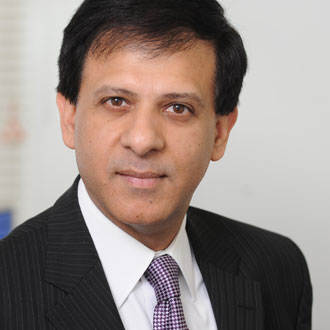Chairman, RB
I stand before you for the very first time as chair of the BMA’s GP committee, proud to represent 46,000 dedicated GPs working tirelessly across the UK.
Today nearly a million patients will visit their GP surgery – put into perspective that’s 16 times more than those who’ll attend accident and emergency – UK general practice is truly the pulse and lifeblood of the NHS, and that which keeps it alive.
It’s admired globally, independently evaluated as having highest levels of quality personalised care, cost effectiveness, and equity. We provide the totality of first point of contact services, unlike parts of Europe where GPs for example don’t see maternity, gynaecological conditions or children. UK GPs manage demand with 19 out 20 patient contacts concluded in primary care itself.
Whilst this should be cause for celebration, it’s tragic that within our own shores, NHS general practice has been systematically devalued, attacked and defunded, leaving it in a parlous state, with the quadruple whammy of a crisis in workload, workforce, premises and morale.
We’re seeing record numbers of patients in general practice – 40 million more annually than five years ago, the greatest rise in any sector of the NHS, set to increase relentlessly with a growing older population, and tranches of care moving out of hospital
Yet despite this escalating workload, we’ve seen brutal disinvestment, with general practice’s share of the NHS budget dwindling in a decade from above 10% to now less than eight, and a real terms reduction of £450m in 3 years, and now MPIG and PMS funding cuts which threaten the viability of many GP surgeries nationally.
We’ve similarly seen a relative reduction in the GP workforce, with the number of GPs as a proportion of all doctors in England reducing from 34% to 26% in two decades.
The simple fact is that demand has far outstripped our impoverished capacity, denying patients the care and access they deserve. GPs are struggling to square an impossible circle to manage the multiple complex physical and mental health needs of patients in the barebones of a 10 minute consultation- an insensitive insult to so many of our most ill patients. We’re forced into providing conveyor belt care at breakneck speed, up to 60 times in a day, added to by an open-ended volume of phone calls, home visits, repeat prescriptions, results, reports and hospital correspondence. This is unmanageable, exhausting and unsustainable and puts safety and quality at risk.
It’s therefore no surprise that even a Government commissioned report last year showed GPs suffering record levels of stress, and a BMA survey showing that 6 out of 10 GPs intend retiring early.
These intolerable pressures have butchered the joy and ability of GPs to care for their patients, leading younger doctors to shun general practice in favour of a career in hospital, with a 15% reduction in GP training applications last year, and 451 places unfilled. Ministers ignore this workforce crisis at their peril which seriously risks leaving patients bereft of a GP service in some areas.
Nor do we have the space to care. With no dedicated funding for GP premises in over a decade, were struggling to provide 21st-century care from dated buildings designed for a past era, without the rooms for GPs to consult, patients to wait or staff to work in.
And whilst the government has announced £650m to ease winter NHS pressures, can you blame GPs for feeling aggrieved that the crisis affecting 90 % of patient contacts in the NHS which is in general practice is given zilch, showing a callous disregard for the plight of a profession on its knees.
Therefore amidst all the headline grabbing pressures in the NHS, I urge Ministers to open their eyes and wake up to the fact that general practice is not just in crisis, it’s imploding. And if the building blocks of the NHS crumble, the NHS collapses too. Not alarmist, not scaremongering. Just fact.
There are 340m consultations in general practice annually compared to 21m in A&E – itself under pressure. The fact is that if you destabilise general practice, it would only take us to see 6% fewer patients to double the numbers attending casualty if they went there instead, with drastic consequences.
Therefore I call upon Government to finally stop denigrating GPs as the problem, and to see us as the solution. That in an NHS paralysed with cash constraints, it’s logical to invest in the unarguable cost effectiveness of general practice. GPs are a bargain at the price – just over £70 per patient per year pays for unlimited appointments, home visits, telephone advice, and so forth – a fraction of the tariff cost of a single outpatient appointment.
And that’s why we’ve launched our campaign ‘Your GP cares’, calling for more GPs, nurses, staff and buildings. To provide us with more time and tools to care for patients, which would reduce hospital pressures, improve the nation’s health, and release cost efficiencies in a cash strapped NHS – we would all gain from this investment.
RB, in conclusion, I urge you to support us in our fight for the very survival of UK general practice and in doing so for the survival of the NHS itself.
Pulse October survey
Take our July 2025 survey to potentially win £1.000 worth of tokens





 Oviva’s fully remote Tier 3 Weight Management programme
Oviva’s fully remote Tier 3 Weight Management programme









